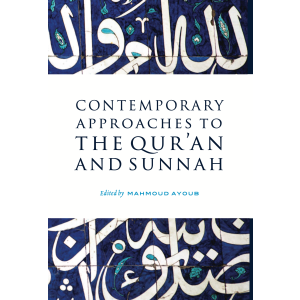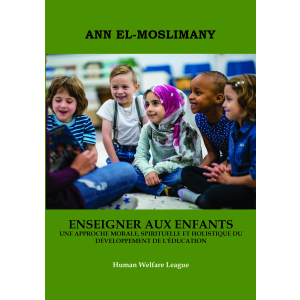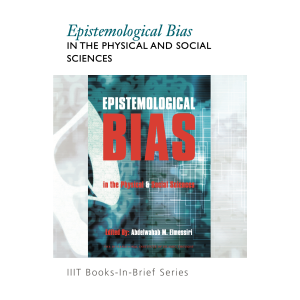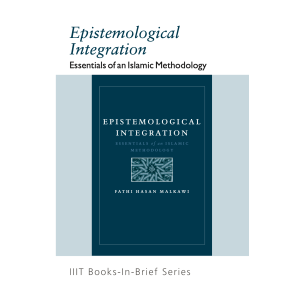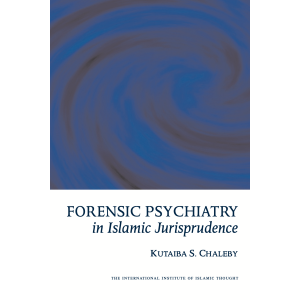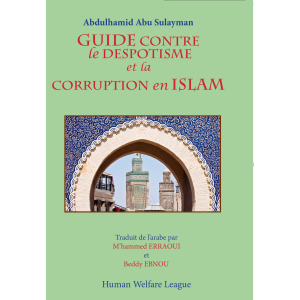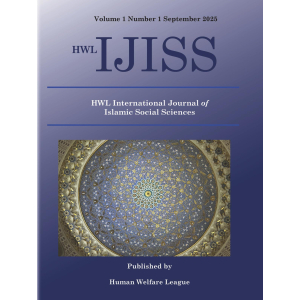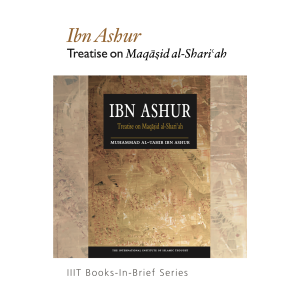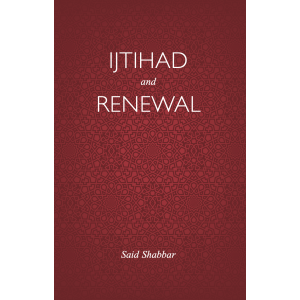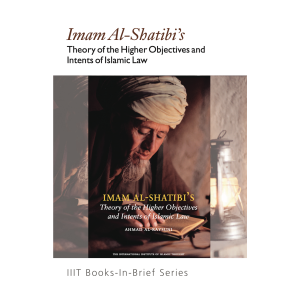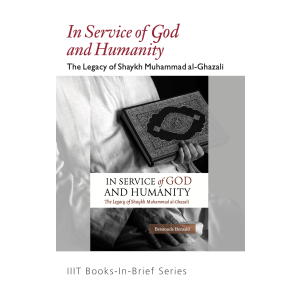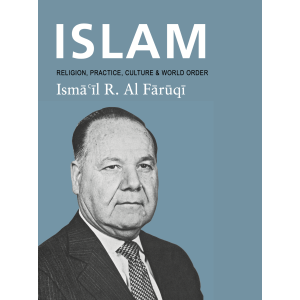-
Contemporary Approaches to the Quran and Sunnah
$0Overview
The Qur’an and Sunnah are the two primary sources of Muslim faith, life, law and morality. The Qur’an is for Muslims the foundation of their faith and the Sunnah is the framework of their morality. Together they constitute the two sources of the law (Shari’ah) of God, a guide to prosperity and happiness in this life and to the bliss of the hereafter. Although the Qur’an and Sunnah are materially and formally two independent sources, they are inextricably bound in a dynamic relationship. The rulings and precepts (ahkam) of the Qur’an constitute the law (shar’) of God. They are supplemented by the precepts of the authentic Sunnah, which possess authority second only to the precepts of the Qur’an. The Qur’an commands Muslims, “Whatever the Messenger gives you, that you must take, and whatever he forbids you, you must desist therefrom….” (59:7).
-
ENSEIGNER AUX ENFANTS Une approche morale, spirituelle et holistique du développement de l’éducation
Original price was: $10.$8Current price is: $8.ENSEIGNER AUX ENFANTS
Une approche morale, spirituelle et holistique du développement de l’éducation
-
Epistemological Bias in the Physical and Social Sciences
$0Overview
The question of bias in methodology and terminology is a problem that faces researchers east, west, north and south; however, it faces Third World intellectuals with special keenness. For although they write in a cultural environment that has its own specific conceptual and cultural paradigms, they nevertheless encounter a foreign paradigm which attempts to impose itself upon their society and upon their very imagination and thoughts. When the term “developmental psychology” for instance is used in the West Arab scholars also say “developmental psychology”, when “applied psychology” is mentioned they hurry to use the same term etc. Why not establish a new science with its own mechanisms, methodologies and points of reference to deal with epistemological biases and open up the gate of ijtihad with respect to them? This collection of papers aims to discover some of the biases latent in our terminology, methodologies, research tools, and conceptual principles, and to propose alternative ones marked by a greater degree of independence and neutrality. This is not to belittle the human value of the West’s creative contributions but to emphasize the danger of making it the ultimate point of reference and then trying to continuously play “catch up” with it.
-
Epistemological Integration: Essentials of an Islamic Methodology
$0Overview
The book is a program which seeks to construct an intellectual framework for Islamic methodology with a view to realizing practical training in the thoughtful investigation of issues related to knowledge in various fields. The book’s title affirms the distinctive types of integration that characterize Islamic methodology, including integration of sources, means, and schools of thought, as well as existing realities with desired ideals etc. This is fully consistent with human nature, as variety is fundamental to the functions people perform and skills they master. The work essentially makes the case that fundamental to any Muslim recovery is laying the foundations of sound thinking and values that integrate the two main sources of knowledge: Revelation and Reality (that is the created worlds both physical, societal and psychological) under the umbrella of Tawhid. This concept of integration implies using both human theoretical conceptualization and practical experimental investigation whilst also affirming the need to apply human capabilities in understanding the divine text, and acquiring sound knowledge of the physical world in terms of its resources, as well as accumulated past and present human experiences. The aim being to vitalize human potential and creativity.
-
Forensic Psychiatry in Islamic Jurisprudence
$0Overview
This is the first book in Forensic Psychiatry that focuses on the application of psychiatry to legal issues connected with Islamic jurisprudence. Holding a unique position amongst the world s religions in its containment of every aspect of human existence, it is openly natural for Islam to govern both the spiritual and legislative aspects of life. This work will appeal to both the general as well as the academic reader drawing important and wide-ranging conclusions relevant for many individuals and societies in the Islamic world.
-
Guide contre le despotisme et la corruption en Islam
$4Overview
Ce livre nous rappel l’absence criarde de democratie et de liberte dans les pays musulmans en particulier depuis l’effondrement du Califat alors que l’Islam contient les fondements d’un etat ou la deliberation collective (La Shura) tient lieu de trait d’union entre le peuple et l’executif et que sans elle le pouvoir perd sa legitimite.La recuperation du pouvoir par des tyrans a donne lieu a des regimes fondes sur la corruption.Ce qui a ouvert la voie a l’injustice generalisee,la stagnation du developpement, le pauperisme et l’ignorance
Dr. AbdulHamid Ahmad AbuSulayman est titulaire d’un B.A. en commerce de l’Université du Caire (1959), un M.A. en sciences politiques de l’Université du Caire (1963) et un doctorat en relations internationales à l’Université de Pennsylvanie (1973). Il a occupé divers postes au cours de sa carrière, notamment celui de secrétaire du Comité de planification de l’État en Arabie saoudite (1963-1964); membre fondateur de l’Association des spécialistes des sciences sociales musulmanes (AMSS) (1972); secrétaire général de l’Assemblée mondiale de la jeunesse musulmane (WAMY) (1973-1979); président du département de science politique de l’Université King Saud de Riyad (Arabie saoudite) (1982-1984); et recteur de l’Université islamique internationale (IIU), Malaisie (1988-1998). M. Abu Sulayman est l’auteur de nombreux articles et ouvrages sur la réforme des sociétés musulmanes. notamment The Théorie islamique des relations internationales: nouvelles orientations de la méthodologie et de la pensée islamiques. -
HWL International Journal of Islamic Social Sciences
$20HWL International Journal of Islamic Social Sciences
-
Ibn Ashur: Treatise on Maqasid al-Shari’ah
$0Overview
Shaikh Muhammad al-Tahir ibn Ashur is the most renowned Zaytuna Imam and one of the great Islamic scholars of the 20th century. The publication of this translation of Shaikh Ibn Ashur’s Treatise on Maqasid al-Shari’ah is a breakthrough in studies on Islamic law in the English language. In this book, Ibn Ashur proposed Maqasid as a methodology for the renewal of the theory of Islamic law, which has not undergone any serious development since the era of the great imams. Ibn Ashur quite courageously also addressed the sensitive topic of the intents/Maqasid of Prophet Muhammad (SAAS) behind his actions and decisions. He introduced criteria to differentiate between the Prophetic traditions that were meant to be part of Islamic law and the Prophetic actions/ sayings that were meant to be for the sake of specific purposes such as political leadership, court judgment, friendly advice, and conflict resolution. But Ibn Ashur’s most significant contribution in this book has been the development of new Maqasid by coining new, contemporary, terminology that were never formulated in traditional usul alfiqh. For example, Ibn Ashur developed the theory of the ‘preservation of lineage’ into ‘the preservation of the family system’, the ‘protection of true belief’ into ‘freedom of beliefs’, etc. He also introduced the concepts of ‘orderliness’, ‘natural disposition’, ‘freedom’, ‘rights’, ‘civility’, and ‘equality’ as Maqasid in their own right, and upon which the whole Islamic law is based. This development opens great opportunities for Islamic law to address current and real challenges for Muslim societies and Muslim minorities.
-
Imam Al Shatibi’s Theory of the Higher Objectives and Intents of Islamic Law
$0Overview
With the end of the early Islamic period, Muslim scholars came to sense that a rift had begun to emerge between the teachings and principles of Islam and Muslims’ daily reality and practices. The most important means by which scholars sought to restore the intimate contact between Muslims and the Qur’an was to study the objectives of Islam, the causes behind Islamic legal rulings and the intentions and goals underlying the Shari’ah, or Islamic Law. They made it clear that every legal ruling in Islam has a function which it performs, an aim which it realizes, a cause, be it explicit or implicit, and an intention which it seeks to fulfill, and all of this in order to realize benefit to human beings or to ward off harm or corruption. They showed how these intentions, and higher objectives might at times be contained explicitly in the texts of the Qur’an and the Sunnah, while at other times, scholars might bring them to light by means of independent reasoning based on their understanding of the Qur’an and the Sunnah within a framework of time and space. This book represents a pioneering contribution presenting a comprehensive theory of the objectives of Islamic law in its various aspects, as well as a painstaking study of objectives-based thought as pioneered by the father of objectives-based jurisprudence, Imam Abu Ishaq al-Shatibi; in addition, the author presents us with an important study of al-Shatibi himself which offers a wealth of new, beneficial information about the life, thought and method of this venerable man.
-
In Service of God and Humanity: The Legacy of Shaykh Muhammad al-Ghazali
$0Overview
In his passionate devotion to the task of inviting others to Islam, Muhammad al-Ghazali (19171996) presented Muslims with a powerful critique of themselves, not only in their endemic failure to project Islam in the best, most reasoned light, but also in their betrayal of the Qur’an’s spiritual principles and the highest standards set by the Prophet Muhammad. This work analyzes al-Ghazali’s critique of du’at (those inviting to Islam) and the practice of da’wah work itself (the call to Islam). It also examines his methodology, various proposed solutions, and the juristic responses to his perspective. The evolution of al-Ghazali’s thought and the people and factors influencing him are key elements of the study. It is hard to conceive where the state of discourse on da’wah and Islamic reform would be without alGhazali’s outstanding contributions. The powerful stand he took on the importance of education, the significant weight he gave to a free society, his promotion of a decent standard of living for the poor, the qualities of moral and personal excellence he appealed for, and his compassionate, impassioned role as an educator, all these preserve al-Ghazali’s reputation, both in his own lifetime and for many generations to come, as one of the twentieth century’s most important Muslim intellectual thinkers and reformers. His legacy is founded on a lifetime of service.
-
Islam: Religion, Practice, Culture & World Order
$0Overview
In this study Al-Faruqi presents the meaning and message of Islam to the wider world community. Key elements of the faith are summarized and explained in an overall theme of seven parts consisting of 21 chapters. Yet the chapters represent far more than a simple description of Muslim peoples and orthodox practice. Al-Faruqi was a great thinker, formidable in logic, and relished intellectual engagement on every level, particularly when it came to Islam and other Faiths. And it is this unique reasoning process that is reflected in this work, Al-Faruqi’s signature contribution, which not only expounds on Islam as spiritual faith and action, but also on Islam the great experience.


